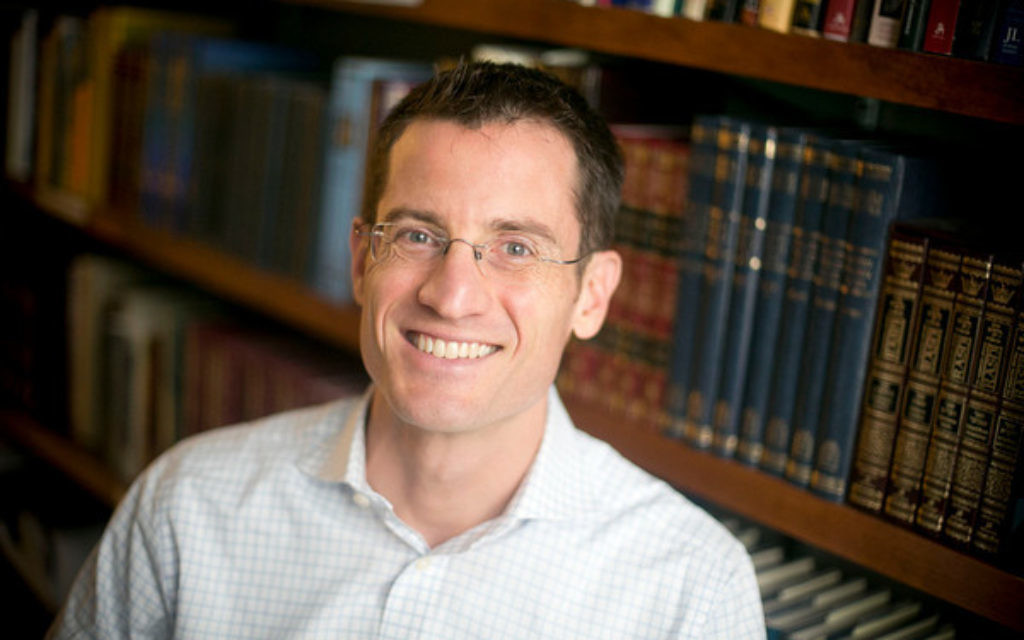Ethics and Health Converge at the Dinner Table
Rabbi Jonathan Crane explains how and why he delved into "Eating Ethically."

When I moved to Atlanta from Canada in 2010, first lady Michelle Obama had just launched the Let’s Move! campaign to promote healthier food, better labeling and more physical activity, especially among children.
Even though concern about health was palpable throughout America, I was surprised by how little was being said about food-related issues and obesity in particular in my academic field of religious ethics. I was taken aback when congregational colleagues warned me not to address these topics, lest I unwittingly shame some people.
I was intrigued and challenged. As I felt it reasonable to think religious leaders should address topics vital to human health, how could I, a rabbi and scholar of Jewish ethics, address this otherwise taboo subject?
Get The AJT Newsletter by email and never miss our top stories Free Sign Up
I found talking about body size and shape to be distracting and unhelpful. And I thought that Jewish views on exercise were meager, Maimonides’ promotion of it in his “Regimen of Health” being a rare exception.
What about food? Judaism is famous for its many rules and regulations about what foods to eat and what not to, about how to prepare foods and when to serve them. These laws and practices make up kashrut.
While they teach the what, how, when and where about food, they hardly answer a set of questions presumed by those rules: Why are we eaters in the first place? What is eating? What is the nature of the eaten?
With eating in mind, I dug into the Jewish textual tradition and found an incredible array of sources wrestling with these questions.

By Rabbi Jonathan K. Crane
Columbia University Press, 264 pages, $35
The very beginning of the Torah, with its two creation stories, situates eating as critical for human flourishing. The second creation story tells us that eating badly — beyond what is divinely prescribed — leads to dire consequences. How prescient! Today’s standard American diet (SAD) is in so many ways an exemplar of eating badly and the subsequent ill health.
Talmudic and medieval scholars, Maimonides included, promoted a simple eating strategy that was simultaneously holy, healthy and individually achievable. I found sources in Islam and Christianity endorsing the same eating strategy.
When I consulted cutting-edge studies on metabolism, appetite and nutrition, I was surprised that contemporary science corroborates this ancient eating strategy. Philosophy and ethics also support this strategy.
“Eating Ethically: Religion and Science for a Better Diet” tells this story by integrating these sources along with art, literature, neuroscience, evolutionary biology and other disciplines.
The book begins by clarifying what eating badly is. If that can be called maladaptive eating, what, then, is adaptive eating? What does eating well mean? And why is eating well called for?
The second section separates out the three interlocking elements of eating: the eater, the eaten and eating itself.
Part 3 unpacks the ancient yet unnervingly scientifically supported eating strategy. The fourth section looks closely at those three tasty yet dangerous macronutrients: salt, sugar and fat. What we find is that old and new wisdom alike endorse the proposed, adaptive eating strategy of these yummy consumables.
What I find amazing in this project is its simplicity. It empowers each person to reclaim the fact that each is an eater. No government, company or diet guru puts food into a person’s mouth. We are each eaters of and in this world; the better we appreciate this fact, the better off we individually and collectively can be.
Bio
Rabbi Jonathan K. Crane serves as the Raymond F. Schinazi scholar in bioethics and Jewish thought at Emory University’s Center for Ethics, an associate professor of medicine in the School of Medicine, and an associate professor in the religion department.
In addition to “Eating Ethically: Religion and Science for a Better Diet,” the books he has written or edited include “Beastly Morality: Animals as Ethical Agents,” “Narratives and Jewish Bioethics,” “The Oxford Handbook of Jewish Ethics and Morality,” and the forthcoming “Approaches to Race and Jewish Ethics.” Rabbi Crane frequently speaks and teaches about food-related topics, Jewish bioethics and ethics generally to professional associations, academic societies and religious communities around the world.
He lives in Decatur with his wife, Public Service Commission candidate Lindy Miller, and their three sons.




comments